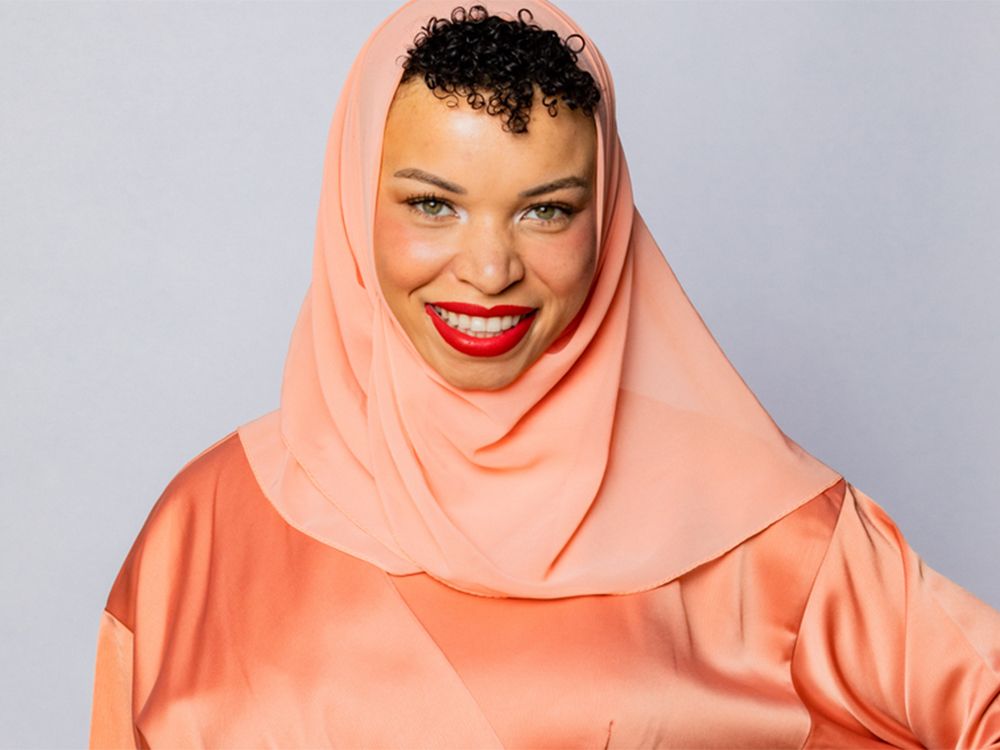Activist Blair Imani talks blackness, identity ahead of Vancouver visit

Credit to Author: Harrison Mooney| Date: Sun, 16 Feb 2020 05:54:06 +0000
Blair Imani joked that this story could be titled ‘Muslim author radicalizes black community.’
The activist and historian, recently named among the 100 most influential African-Americans by The Root, will be in Vancouver next week to promote her second book, Making Our Way Home: The Great Migration and The Black American Dream.
Released in January, just in time for the 50th anniversary of Black History Month, Imani charts the exodus of six million African-Americans from the American south, to northern and western cities between 1910 and 1970. Paired with illustrations by Rachelle Baker, the highly-accessible history book reads like a graphic novel.
But while the SFU Public Square event on Feb. 22 will celebrate Imani’s newest work, as well as her ongoing work with the Black Lives Matter movement, it will also feature conversations with Stephanie Allen, Udokam Iroegbu and Olivia Lucas, who will speak, respectively, on black Vancouver history, West African history and Afro-Indigenous history.
Imani, 26, said she was especially excited to hear from Allen, a real estate developer and founding board member of Hogan’s Alley Society, which is named for the black community that settled and thrived in Vancouver during the great migration, only to be displaced in the 1970s to make room for the Georgia and Dunsmuir viaducts.
Making Our Way Home.
It’s a common story in Making Our Way Home.
“A lot of what I talk about in my book is displacement through gentrification,” Imani said. “The lives of people of colour have constantly been at the peril of developers.”
The history of black Strathcona, which is becoming more widely known across Vancouver thanks to the work of the Hogan’s Alley Society and other community activists, puts into perspective the notion that everything was trouble-free for black migrants once they came north to Canada.
“It’s made to seem like Canada is this equal land where everyone is so polite, and oppression doesn’t operate in the same way,” Imani said.
This false narrative is harmful, Imani argues, as it can discourage black Canadians from fully embracing a history and identity that is theirs. Moreover, Imani says the spotlighting of American history serves to weaponize it against the black community elsewhere.
“I found that we were being put on (display) to convey to the people gathered, various groups, that: look at how bad it is in America. It’s not nearly as bad in Berlin or London or Vancouver or Ottawa or Toronto,” said Imani. “It says, look how bad these people have it, you should be grateful for what you have, regardless of how bad it is.”
Imani believes the solution is to think globally.
“I think that one of the ways that we’re going to fight for freedom is not to put ourselves in this hierarchy of blackness, or proximity to blackness, or proximity to oppression, but instead to be internationalist in how we fight for freedom.”
For Imani, blackness is about more than skin colour. It’s a political identity as one’s connection to black history informs the ongoing fight for an inclusive, oppression-free future for all.
“It’s imperative for black folks to be in solidarity with Indigenous folks because often there’s a connection,” Imani said, pointing out that Indigenous Canadians travelled south to support Black Lives Matter. “It’s not a big stretch of the imagination to look at the landscape of oppression and liberation and feel like we should fight together.”
Imani has had ample time to reflect on the issue of black identity, especially as her public persona has been evolving since her conversion to Islam in 2015, and her 2016 arrest following the shooting of Alton Sterling in Baton Rouge, Louisiana. For a time, that seemed like enough.
“When I converted to Islam I felt like I was too many things,” Imani said. “I’m black, I’m a woman, I’m Muslim, I’ll leave it there.”
But then Imani came out as bisexual during a heated Fox News interview in 2017 and now, living as she does at the intersection of four marginalized communities, her thinking has evolved. She’s not the problem. A system that tries who limit how we see ourselves is the problem.
“I think that it’s crucial for black people of every generation to know that we are our whole selves, we are a community, we are individuals, we are beautiful, we have ugly parts as well, but we are whole people and we don’t need to portray ourselves as perfect entities because we are going to be dressed down by society regardless,” she said.
“Why dehumanize ourselves when we’re going to live in a system that does that on a daily basis?”
CLICK HERE to report a typo.
Is there more to this story? We’d like to hear from you about this or any other stories you think we should know about. Email vantips@postmedia.com.